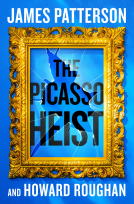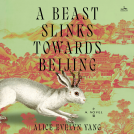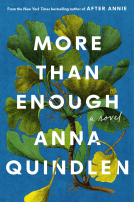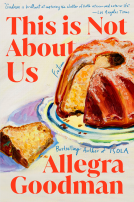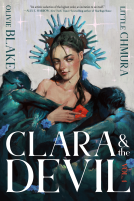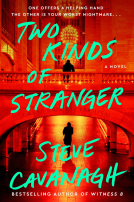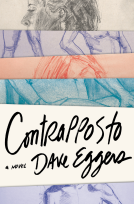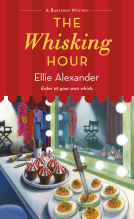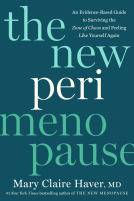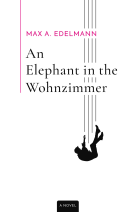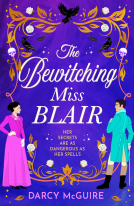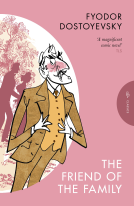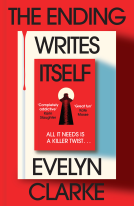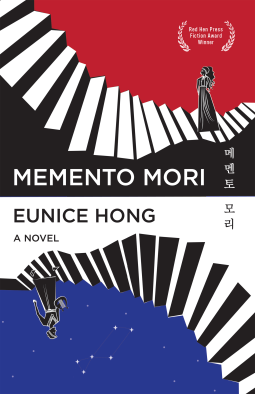
Memento Mori
by Eunice Hong
This title was previously available on NetGalley and is now archived.
Send NetGalley books directly to your Kindle or Kindle app
1
To read on a Kindle or Kindle app, please add kindle@netgalley.com as an approved email address to receive files in your Amazon account. Click here for step-by-step instructions.
2
Also find your Kindle email address within your Amazon account, and enter it here.
Pub Date Aug 13 2024 | Archive Date Sep 13 2024
Talking about this book? Use #MementoMori #NetGalley. More hashtag tips!
Description
Don’t look back.
Did Eurydice want to return from the underworld? Did anybody ask?
In this brilliant portrait of rage and resilience, a Korean woman tries to connect with her younger brother and grapple with family tragedy through bedtime stories that weave together Greek mythology, neuroscience, and tales from their grandmother’s slipping memory.
Recasting the myths of Eurydice, Orpheus, Persephone, and Hades through the lens of a Korean American family, Eunice Hong’s debut novel offers a moving and darkly funny exploration of grief, love, and the inescapability of death.
Advance Praise
“Memento Mori is an unexpected and thrilling story that features myth without being just a simple retelling. Eunice Hong reimagines the myth of Orpheus and Eurydice beautifully, deftly weaving it into a stunning narrative of one person’s attempt to come to terms with memory, history and trauma, life and death. For all the book utilizes Eurydice to explore these themes, it’s Hong’s Persephone that stole all my attention.” —Liv Albert, creator, host, and producer of Let's Talk About Myths, Baby! and author of the bestselling Greek Mythology: The Gods, Goddesses, and Heroes Handbook
“A beautifully written and impressively candid meditation on family secrets and the ties that bind, the slipperiness of memory and family lore, and resilience and endurance found in even the unlikeliest of circumstances.” —Helen Wan, author of The Partner Track
“As the title of this exquisite work suggests, Memento Mori is a testament to the presence and power of death in life—here, specifically, in the life of a Korean American family with roots in North Korea. From the opening pages, I was stunned by the author’s ferocious intellect and clarity. Though the text is fragmented and the narrator unnamed, each line holds the reader close, like a confidante, with the implicit promise that all will be revealed, that every piece of this sometimes baffling puzzle will matter and add up to a story that is devastating and whole. There will be grief and gallows humor. There will be knee-buckling trauma. There will be losses that leave this nameless narrator and her family forever scarred. But even as her oblique telling delivers on its grim promise, we realize that this clan, mostly through the tenacity of its women, is wired to endure. Whether the source of loss is war or a despotic regime, date rape or accidental brain damage, the aftermath will be both brutal and bonding. Once this ‘less than perfect life’ subsides, the survivors will carry on ‘with sadness and relief.’ And as the very structure of this book makes clear, memory will be their vehicle, missing pieces and all.” —Aimee Liu, author of Glorious Boy
“Rage, grief, shame, and guilt wrapped up in one perfect Homeric simile for memory, trauma, and Asian-Americanness. Memento Mori was everything I wanted and more: a brilliant work of art that is just as insightful and darkly funny as it is beautiful.”—Maia Lee-Chin, author of Et Cetera: An Illustrated Guide to Latin Phrases
Available Editions
| EDITION | Other Format |
| ISBN | 9781636281872 |
| PRICE | $17.95 (USD) |
| PAGES | 256 |
Links
Available on NetGalley
Average rating from 37 members
Featured Reviews
 Book Trade Professional 1361644
Book Trade Professional 1361644
It has been a very long time since a story was able to leave such a deep impact on me. I can’t even remember the last time I finished the last word of a novel and just stared into nothingness for a while. I don’t say this lightly but Memento Mori is by every definition a work of art.
Hong’s intellect simply shines through the pages as she weaves together ageless myths with a tale about grief, rage, survival, resilience, and most importantly, memories and how they shape us, relieve us, and deceive us.
Let me make it clear here that the briefness of this review does not reflect my lack of interest in Eunice Hong’s debut but my inability to find words good enough to describe it. Memento Mori is a story that stunned me from the first page and left me lost for words by the last. It’s an exquisite work of art that you should experience yourself because no review, blurb, or synopsis will do it justice.
Memento Mori was a stunning work that wove myth retellings through the tale of a young woman grappling with grief and loss as her family sought to deal with a tragedy that had a deep impact on them all. The prose was easy reading on the one hand but full of emotional impact at the same time. The segmented flow of the story also contributed to the feeling of disruption and disjointedness and helped to highlight the narrator's disordered mind as she tried to make sense of everything that had happened to her. It is a fairly stark story and the subject matter may not be for everyone, but I recommend it to readers looking for a raw portrayal of grief told in a lyrical, captivating way. I am giving it 4.5 stars.
Thank you to NetGalley and Red Hen Press for an ARC of this novel.
The Latin phrase ‘memento mori’ translates to ‘remember you must die.’ Its use, spiritually and artistically, dates back to the ancient Romans, and it is a theme common to both pagan myth and Christian doctrine. It is two-sided in meaning, meant as both a comfort and a warning of human frailty and insignificance. Considering how short and nasty life could be for common people, until very recently, memento mori was woven into the cultural fabric. Now, most people prefer to forget that death is imminent and inescapable, and are encouraged to do so.
The unnamed narrator in this pensive novel admits to an overwhelming fear of death, and struggles constantly with the choice between living or not, a choice that she will also have to confront on behalf of others. But this isn’t a story about depression so much as a story about resilience, about holding on and letting go. We slowly learn her life story and family history back several generations. She is Korean-American, born to educated and affluent parents who maintain home and work in both worlds, but whose two children, she and younger brother M. , were raised in the United States by their beloved paternal grandmother.
The story centres on her relationship with her brother, whom she parented alongside their grandmother when their parents were in Korea. Much of her memory of their childhood has to do with their cherished bedtime ritual, in which she recounts mostly faithful versions of myths, especially the story of Eurydice and Orpheus. Unlike the traditional version, in which love spurs the hero to save his beloved from death, she raises the question that no one asked Eurydice because the story is about Orpheus: did she want to return? Maybe Eurydice was content in the underworld. The moral that she draws from it is ‘don’t look back,’ because it is dangerous. But so is not looking back.
The Eurydice story frames the larger themes about dying, the ‘underworld’ that many visit even while on earth, the ways of trauma, loss, grief and mourning. The ways of remembering and the ways of forgetting.
As she tells it, the story covers about 20 years of the narrator’s life, from late childhood to her early 30s, much of it in memory. It is ostensibly a record of her life intended for her brother to read, explaining her periods of withdrawal as well as her memories of him, their parents and grandparents, their “foreignness” in both Korea and the United States. She speaks also of her paternal grandmother’s escape from North Korea, the accident that changed her, the way she repeatedly told her granddaughter, even as a young child, that she wanted to die. And of the friends who sustained her, and those who indelibly harmed her. These, too, are not named, and the most evil are identified only by the em dash.
The author imaginatively interweaves myth, astronomy, custom, neuroscience and philosophy of mind in its telling. She writes clearly and simply, while conveying the narrator’s complex inner life. It is a masterful debut.
 Reviewer 1368398
Reviewer 1368398
This novel is a moving narrative, where the unnamed narrator tells the story of her life, framed within the myth of Orpheus and Eurydice. I initially picked this one up due to the Greek mythology theme, but found myself enjoying the day-to-day experiences of the narrator even more than the chapters focused on retelling the myth.
Reading this book was an emotional roller-coaster. I found myself laughing at the beginning of the book, and then crying by the end - this will be a book I revisit when I need a cathartic cry. The exploration of grief, depression, and the loss of self is handled with sensitivity, while emphasising the importance of connecting with the ones we love.
Though it's only June, this is likely to be my book of the year.
Thank you to Eunice Hong and Red Hen Press for the e-arc, in exchange for an honest review.
Thank you to NetGalley for the ARC of this book.
This story was a beautiful marriage of meaning and form, with a structure that repeatedly circled back on itself, mirroring the neuroscience of the memories rewriting themselves through trauma and grief. Building the story of the narrator piece by piece made the pacing a bit slow at times, but putting the pieces together across the varying timelines did keep me coming back to the book through a heavy series of tragedies for the narrator.
I think the question the book ultimately asks is: what are the responsibilities of the griever to the subject of grief? I'm not sure I have found the answer, but I appreciated the exploration of the question.
My thanks to the publisher and NetGalley and the author for allowing Memento Mori to be a 'Read Now' option there, I had seen snippets of news of the book forthcoming because I follow L. E. Jenks-Brown / @GreekMythComix who's coloring book I backed on Kickstarter in 2022.
It should be of interest that a pre-order of Memento Mori comes with a Eurydice & Orpheus bookmark designed by L. E. Jenks-Brown / @GreekMythComix and a signed bookplate that has Cerberus on it too! After you preorder, fill out the form for the Memento Mori Bookmark+ Bookplate!
I read the bulk of the book in the past two days, diving into a narrative of a Korean American woman who calls upon the Muse of grief (is there a Muse of grief? Melpomene, perhaps) as she begins to recall telling her brother bed time stories of Persephone and Demeter, Eurydice and Orpheus.
We learn about her and her family, that she's endured not only his death - but the death of her grandpa and that her struggle to survive and endure in this one life is uprooted, not only by tragic death like in the myth of Eurydice and Orpheus- but by rapes as Persephone's was.
That none of those things mark a ending, or a victory, but another turn of the wheel of survival and what that means to her. That her hopes for herself, for her family and her mother and father's mother are sometimes unspeakable and tragic but like Orpheus, she can look back and live to find another way - or not.
Someone who knows the myths will tell where and how they are changed (Persephone's swallowed seeds pomegranate become golden and bejeweled threads that trap her to a life and realm she truly dreads -Eurydice is a girl who lives on a mountain with her family and flees a marriage with a man who kills her family and her) but myths, stories, must change because the people who tell them change from one generation to the next.
History tells us that those ancient people want to be remembered even as we live, "remember death", memento mori. No one can tell you what life means, or where to go with it, or what to do with it. It's yours. Live your life, but remember you will die. Remember that you will someday, sometimes only be remembered by the family stories you pass on to others, be they the friends, or enemies, who go on to tell them even to others after your death.
Until those who come after us might not even remember our names (I liked the perceptive device of using initials instead of names).
Readers will tell a author "This book saved my life" and it isn't something to be dismissed -books, stories, folklore, myths matter in our lives in ways we don't truly have the science or knowledge yet to explain to ourselves or fully to others. Yet they go on mattering and being told, living with us and sometimes...sometimes stories, words die out.
What is a Muse after all, only a daughter of memory.
tw / suicidal ideation, death
Opening with the unnamed narrator telling her little brother of the myth of Persephone and Hades as a bedtime story, this novel weaves snippets of retelling of Greek mythology (with interjections from M, the younger brother) and vignettes of the narrator’s own life. She tells us of her ailing halmoni (paternal grandmother) and her mother’s role as caregiver, she tells of her own struggles with mental health and entertaining thoughts of dying, and—most devastating of all to me personally—she tells of her brother’s tragic accident and the toll it took on her family.
This one’s a quiet and introspective novel about family history and belonging, about the ever-present awareness of death and loss for a family of divided roots between America and Korea. The Greek myths of the underworld, and particularly of Orpheus and Euridyce frames the narration, that urge to look back and the need not to; the question of whether one should avoid looking back if they want to move forward. Death is the ultimate separator—do you prolong a loved one’s possible suffering despite the odds just to have them linger with you or do you let them go? What would they have wanted, what could they want when the choice is not in their hands? In Memento Mori, love and death are entangled, inseparable. An understated and powerful debut.
 Reviewer 563907
Reviewer 563907
What a stunning read.
This book is one of those rare instances where philosophy, mythology, humanities, and the sciences blend into a story that is as compelling as it is riveting.
I had high expectations coming into this book, and my expectations were all exceeded.
A beautiful blend of intelligence and all the aspects that make us human.
I will be recommending this book to everyone.
 Reviewer 1383509
Reviewer 1383509
Memento Mori is a beautiful exploration of death, loss, depression and love. Upon starting the book, I found it a little difficult to follow the jumping storyline but that quickly resolved itself and became easier to follow.
As a reader with little knowledge of Korean language and culture, Hong did a great job of explaining enough that I wasn't in the dark but not overexplaining to the point that it reads like an encyclopaedia. Having also grown up in a bilingual, dual culture household I recognised the hopping from one language/culture to another for different thoughts and feelings, especially related to family.
Hong's exploration of grief felt very real and emotive. The disjointed start to the novel where the main plot was not yet clear replicates well the disjointed feelings in the initial stages of grief, after which when the death is a little more distant the narrator is able to explain what has happened. I did not expect M.s accident but had thought that the novel was the narrator speaking from past the grave. It made perfect sense when the plot twist arrived that the narrator would be speaking to her deceased brother.
This was a really powerful, beautiful read and I will definitely be recommending it to others and rereading once it is released.
If I loved this book less, I could talk about it more.
Memento Mori (Latin, ‘remember you must die’) weaves retellings of myths through the tale of a young woman grappling with grief, loss, trauma, and tragedy. The short chapters (snapshots really, of life as it moves on) feel easy to read on the surface, but the sense of disjointedness and the full emotional impact of the moment tends to hit you not long after.
It’s a very raw depiction and while it certainly won’t be for everyone, I cannot thank NetGalley and the publisher enough for making this a ‘read now’ option. I’m so glad I got to experience this book and I’ll be thinking about it for a very long time.
The story of a Korean woman using Greek mythology to process her grief: Memento Mori by Eunice Hong
This book was such a unique concept, and pulled me in right away with the story of Persephone. Each chapter is written almost like a diary entry or jumble of thoughts, but these individual entries come together to tell the journey of a young woman processing her grief after her younger brother suffers a devastating accident.
Although the topic is loss, the narrator’s childhood stories and love for her brother shine through in a way that add moments of love and appreciation.
 Aldana B, Reviewer
Aldana B, Reviewer
I want to thank netgalley, redhenpress & eunicehong for the arc.⠀
⠀
We get to know the characters in this book through the eyes of one narrator. A girl, an older sister, the daughter of Korean parents. We get to know them through the eyes of someone that loves them, each of them in a different way perhaps, but no less true & unconditionally. This is a family like any other, but here we see the problems, the expectations, the sleepless nights wondering what to going to happen to all of us.⠀
⠀
It has been hard to talk about this book, to come up with a review, to offer some kind of insight because 𝗶𝘁 𝗿𝗲𝗮𝗹𝗹𝘆 𝗵𝗶𝘁 𝗵𝗼𝗺𝗲. The questions the narrator asks herself, her relationship with her grandparents, where she sees herself standing in life, trying to tick all the boxes, how we sometimes demonise good intentions. The book is raw, rough, is difficult in its own realness. To me, this book is for the girls, the only child, the older sisters, the ever caring mothers, 𝗶𝘁 𝗶𝘀 𝗮 𝗯𝗼𝗼𝗸 𝘆𝗼𝘂 𝘀𝗵𝗮𝗿𝗲. The title of each chapter goes back to shared things between the narrator & her brother, her friends, the things one does when we would like to explore each corner of the universe from our own little corner, it was a wonderful way to tie the whole story.⠀
⠀
As a bonus, for us, the girls 𝗼𝗯𝘀𝘀𝗲𝘀𝗲𝗱 with greek mythology, the book intertwines the myths of Orpheus & Eurydice and Hades & Persephone, how both of them are related to each other as well. It made me all the more excited for this book, this story, how we transport ourselves to this ancient moments so vividly. Eunice does an amazing job at taking us to that exact moment. I highly recommend this book, especially if you loved Everything I Never Told You by Celeste Ng.⠀
⠀
Again, i want to thank netgalley, the publisher & the author for the arc. More to the author for hearing (reading?) me ramble & being so kind! & for the bookmark that is still out there but i hope to have here with me soon!
 Reviewer 854528
Reviewer 854528
"the road ends, eventually. past the ruined shell of a stone house, past the iron benches, past the massive tree trunk cut into a crude bench, the path stops. at its finish: a high circle of stone around an emerald. a garden of the dead. name. epitaph. date en dash date. the entirety of life contained in an accident of punctuation, an arbitrary designation of meaning to indicate separation.”
eunice hong’s “memento mori” is as gut wrenching as it is beautiful – and undoubtedly one of the best this year.
like the myth of orpheus and eurydice, this story is imbued with death. each page, each chapter, death follows the narrator, a constant reminder of that which is inevitable, no matter how hard you may try to delay it. life leads to entropy, to deterioration, until it has been snuffed out. until the energy must shift elsewhere. as she tells these stories to her beloved brother, as she slowly reveals what she has gone through, how it has shaped her into who she has become, the narrator always feels death trailing behind her, slowly, wordlessly.
emotionally, was a heavy read, a rare instance for me to be brought to tears. at times i wanted to stop, to close the chapter, to hold that inevitable away from myself and from the story, but i simply had to carry on, to let that pain exist, to watch life and death play another round of chess.
this is such a powerful debut for hong, showcasing incredible skill for balancing poetry, science, and the mundane of everyday life. along with life and loss, hong also explores the struggles experienced by korean women living both in south korea and as diaspora. topically, the gender roles, the sexism, and the sexual violence discussed felt topical with the revelations of recent weeks about the extent of misogyny and abuse in the country. it feels clever without making you feel stupid, even as you read about the myths, or the neuroscience, or the land of her ancestors.
i wish i could go back and read it again anew – despite the heart wrenching journey it took me on.
 Mohit G, Reviewer
Mohit G, Reviewer
What a small and powerful book! The writing is experimental so takes a bit of getting used to but the book is packed with emotions. An amazing debut!
 Sarah J, Bookseller
Sarah J, Bookseller
How can I even begin to explain what a journey this book was. This year, I made a point of engaging with more East Asian literature, and this is now at the top of my rankings for reads this year. Told through a combination of essays as the author traverses grief and loss, it was particularly impactful this year as I struggled with similar things. Highly highly recommend.
Readers who liked this book also liked:
Max A. Edelmann
General Fiction (Adult), Historical Fiction, Literary Fiction
